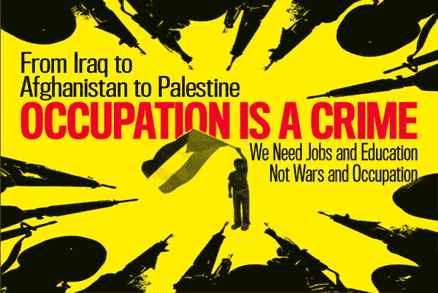
The possibility of extending, or ending Israel’s moratorium on West Bank settlement construction will be discussed within the context of upcoming direct Middle East peace talks, a senior U.S. official said Monday.
The comment by State Department spokesman Philip J. Crowley came after Palestinian officials had said in recent days that the resumption of settlement construction beyond the September 26 moratorium expiration date would cause the Palestinian Authority to withdraw from the recently accounted direct peace talks.
President Mahmoud Abbas had warned that renewed Israeli construction in settlements after the end of the construction freeze in late September would bring the newly-launched direct negotiations to a grinding halt.
Abbas conveyed the message in letters sent to U.S. President Barack Obama, Russian President Dmitry Medvedev and the High Representative of the European Union on Foreign Policy, Catherine Ashton.
Asked to comment on Abbas’ recent demands, Crowley said Monday that the United States believed that “once that negotiation starts, it will be incumbent upon both the Israelis and Palestinians to avoid steps that can complicate that negotiation.”
“Settlements are an important issue,” Crowley said, adding that Washington expected “to address settlements, as well as the other crucial final-status issues within the context of the negotiation.”
The Assistant Secretary of State for Public Affairs added that the United States was “very mindful of the moratorium and the fact that it comes up for a reconsideration during Septembe,” adding, however, that this issue will be discussed “within the negotiation. That’s why we want to get the negotiation.”
“None of these issues can be resolved outside of this negotiation,” Crowley said, adding that the U.S. was “very mindful of the Palestinian position. We’re now into direct negotiations; we expect that both parties will do everything within their power to create an environment for those negotiations to continue constructively.”
Israel and the Palestinians accepted on Friday an invitation by the United States and other powers to restart direct talks on Sept. 2 in a modest step toward forging a peace deal within 12 months to create a Palestinian state and peacefully end one of the world’s most intractable conflicts.
Israel, however, has time and again stressed the importance it saw of arriving at the negotiations table “without preconditions,” in what appeared to be as a direct rebuke of that Palestinian call to halt settlement construction as a condition for talks to take place.
In a possible reference to Palestinian demands over West Bank settlement construction, Vice Prime Minister Silvan Shalom told the Quartet’s Mideast envoy Tonu Blair during their Monday meeting that Israel was “pleased about the renewal of direct negotiations with the Palestinians,” but adding that preconditions could cause an early end to such an attempt.
“It must be understood that setting preconditions even before the sides had a chance to sit at the negotiations table will bring about the failure of those talks,” the vice PM said, adding that late Palestinian leader Yasser Arafat “never presented preconditions and Abbas never demanded it from Olmert.”
“The Palestinians must recognize the importance of direct talks where the two sides can present the demands and claims,” Shalom said.